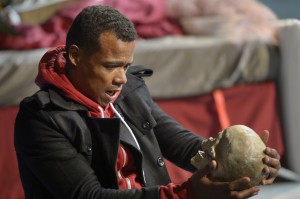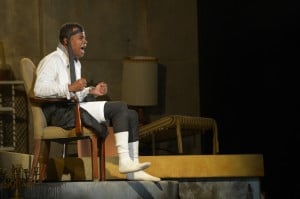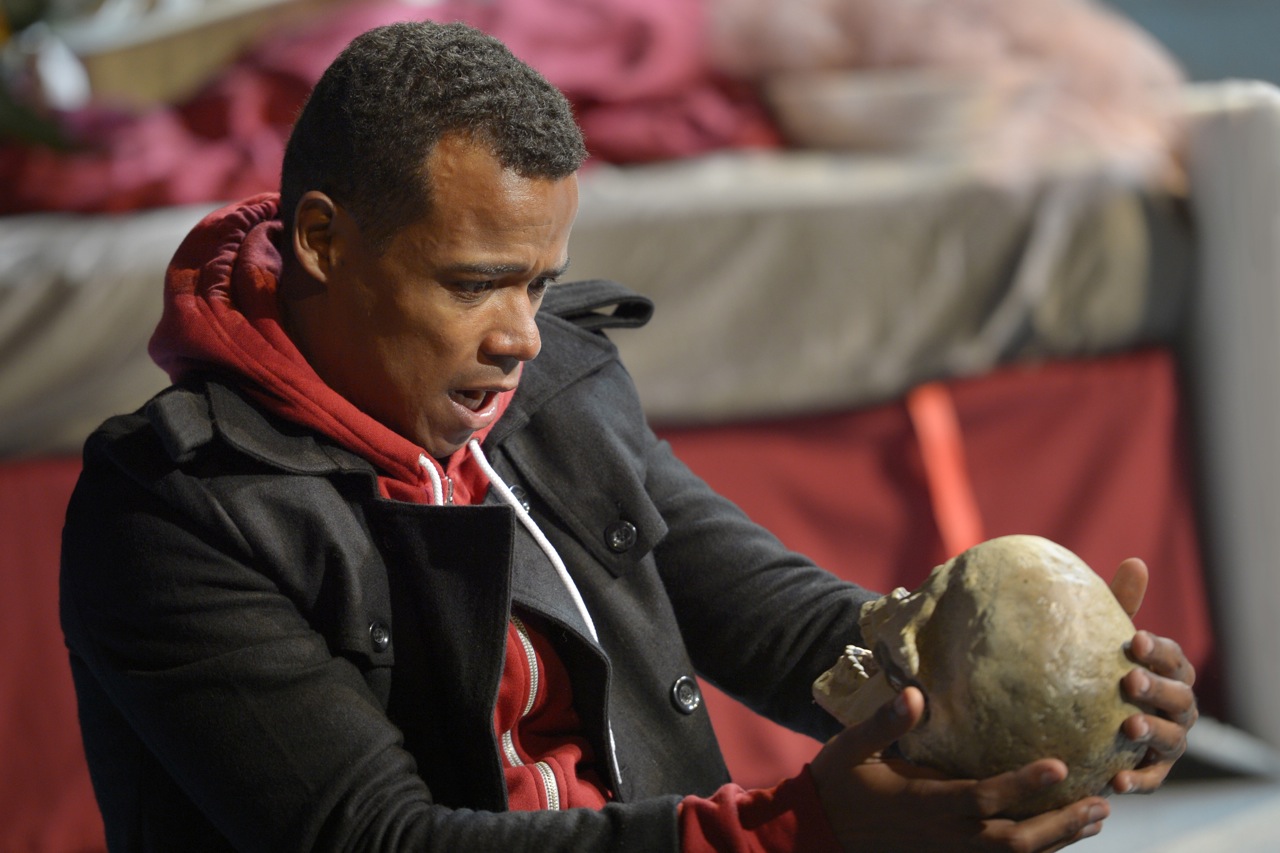The final play in the California Shakespeare Company’s (CalShakes) season is “Hamlet,” the story of the titular Danish prince (Leroy McClain) who must contemplate whether to kill his uncle, Claudius (Adrian Roberts), who murdered Hamlet’s father (also Adrian Roberts) and proceeded to marry his mother (Julie Eccles) in one fell swoop.
Shakespeare’s play is so rich and long that it is impossible to do justice to all of its complexities in any production and unfeasible to stage it unabridged. Director Liesl Tommy’s production sacrifices the political complexities and many of the parallels between fathers and sons – the entire subplot regarding the impending invasion of the vengeful Fortinbras is excised – in order to focus on the dysfunctional family drama and, in doing so, highlight the meta-theatrical components.

The set itself – a rank swimming pool and large platform in a grand but decaying house – contains a mini-stage which Tommy cleverly uses to highlight when characters are actively performing or disingenuous.
When the main characters first appear all together, Claudius addresses his subjects, not facing the audience, but standing at the back of the stage on the elevated platform, his back turned to us and facing a crowd; in its execution, we are reminded of a modern political rally. When he turns around, he opens the doors to Elsinore, which is perched atop the putrid swimming pool, and the action begins; we immediately get the sense of witnessing something behind the scenes, and yet the characters are constantly putting on airs with each other. Some dancing starts and stops in tableau as Hamlet steps down to speak of his loneliness – his first soliloquy – and then steps back into his dance with his love interest Ophelia (Zainab Jah) with a falsely-sunny disposition. It’s a powerful and modern image of isolation and completely true to the elements of performance in the play.
Tommy makes several bold but clever choices to further the meta-theatrical component of the play. She keeps Horatio onstage almost constantly; he was always the only surviving and lucid witness to all the action, but his presence makes him culpable and highlights how and when Hamlet is putting on airs, though the payoff would have been better had Fortinbras appeared in the end. This makes the occasions where Hamlet is completely alone to contemplate his thoughts rare, and the intimacy of his soliloquies ever more apparent. When the troupe of tragedians arrives with their misplaced Hollywood khaki, they look like fish out of water, but at least, Tommy suggests, they are honest about their profession and their pretense.

This production is generally very accessible and the acting top-notch, and never do the actors sound as though they are reciting iambic pentameter. Dan Hiatt’s Polonius is of particular note for his stellar acting ability. The show also features new takes on classic characters. Rosencrantz (Jessica Kitchens) is a woman, making the pair of Rosencrantz and Guildenstern seem like substitute parents for Hamlet instead of just pals; the characters often traverse the stage between scenes, like ghosts haunting the house. Ophelia’s descent into craziness involves singing the Smiths’ “Girlfriend in a Coma.” For every idea that doesn’t really work, at least one other is a gem, and they are all thought-provoking, if not always effective.
The main problem with the play, though, is that by removing the political complexities, the stakes for Hamlet aren’t as high – thus, Hamlet comes off as a whiny teenager rather than a thoughtful and conflicted young man with the weight of the world on his shoulders. This makes the audience much less sympathetic; in fact, our sympathies are almost entirely transferred to Ophelia, the one truly innocent victim in Tommy’s production. And if we can’t completely empathize and identify with what is one of the most universally identifiable characters ever written, there’s a serious problem that might give the wrong impression of the character to neophytes. Nevertheless, the production is full of momentum, funny (as “Hamlet” ought to be at times) and rich with challenging ideas, making it an enjoyable outing for anyone and the subject of interesting discussion among fans of the play.
